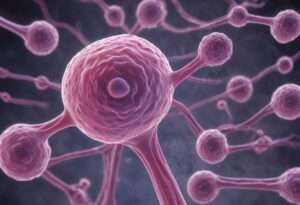Mycoplasma Genitalium: The Silent STI You Need to Know About
Sexually transmitted infections (STIs) are a common concern for sexually active individuals, but there’s one you might not have heard of yet: Mycoplasma genitalium. This lesser-known but increasingly prevalent STI has been making headlines in recent years, and for good reason.
In this comprehensive guide, we’ll explore everything you need to know about Mycoplasma genitalium, from its symptoms and transmission to diagnosis, treatment, and prevention.
Butyric Acid: The Gut-Friendly Compound You Need to Know About

Table of Contents
ToggleWhat is Mycoplasma Genitalium?
Mycoplasma genitalium (MG) is a tiny bacterium that can infect the urogenital tract in both men and women. First discovered in the 1980s, it’s one of the smallest known bacteria capable of self-replication. Despite its size, MG can cause significant health issues if left untreated.
According to the Centers for Disease Control and Prevention (CDC), MG is more common than gonorrhea but less common than chlamydia. Studies suggest that approximately 1-2% of the general population may be infected with MG, with higher rates among certain groups.
Symptoms of Mycoplasma Genitalium
One of the challenges with MG is that it often doesn’t cause any noticeable symptoms, especially in its early stages. When symptoms do occur, they can be similar to those of other STIs, making diagnosis tricky. Here’s what to look out for:
Syphilis Testing: A Comprehensive Guide to Diagnosis and Screening

Symptoms in Women:
• Abnormal vaginal discharge
• Pain or burning during urination
• Pain during sexual intercourse
• Lower abdominal pain
• Irregular bleeding between periods or after sex
Symptoms in Men:
• Urethral discharge (clear or mucoid)
• Pain or burning during urination
• Pain or discomfort in the penis or testicles
It’s important to note that up to 70% of infected individuals may not experience any symptoms at all. This asymptomatic nature contributes to the silent spread of the infection.
Oral Gonorrhea: A Comprehensive Guide to Symptoms, Diagnosis and Treatment
How is Mycoplasma Genitalium Transmitted?
MG is primarily transmitted through sexual contact, including:
• Vaginal intercourse
• Anal intercourse
• Possibly through other intimate genital contact
Unlike some other STIs, MG is not typically transmitted through oral sex or kissing. The exact incubation period (time from exposure to symptom onset) is not well established but is thought to be around 2-3 weeks.
Risk Factors for Mycoplasma Genitalium
While anyone who is sexually active can contract MG, certain factors may increase your risk:
• Multiple sexual partners
• Unprotected sexual activity
• Young age (15-24 years old are at highest risk)
• Previous STI diagnosis
• Men who have sex with men (MSM)
Hepatitis A, B, and C: Understanding the Differences and Similarities
Complications of Untreated Mycoplasma Genitalium
If left untreated, MG can lead to several complications:
In Women:
• Pelvic Inflammatory Disease (PID)
• Increased risk of infertility
• Potential increased risk of preterm birth or miscarriage
In Men:
• Urethritis (inflammation of the urethra)
• Epididymitis (inflammation of the epididymis)
• Potential link to male infertility (still being studied)
Both genders:
• Increased risk of HIV transmission and acquisition
Diagnosing Mycoplasma Genitalium
Diagnosing MG can be challenging due to its often asymptomatic nature and similarity to other STIs. The most accurate method for diagnosis is through Nucleic Acid Amplification Tests (NAATs), which detect the genetic material of the bacterium.
Types of samples that can be tested include:
• Urine samples (for both men and women)
• Vaginal or cervical swabs (for women)
• Urethral swabs (for men)
It’s worth noting that MG is not typically included in standard STI panels, so you may need to specifically request testing for it if you suspect an infection.
Treatment Options for Mycoplasma Genitalium
Treating MG has become increasingly challenging due to antibiotic resistance. The current recommended treatment regimen typically involves:
1. First-line treatment:
• Doxycycline for 7 days, followed by
• Azithromycin for 3 days
2. Alternative treatment (if resistance is suspected):
• Moxifloxacin for 7-14 days
It’s crucial to complete the full course of antibiotics as prescribed, even if symptoms improve. Additionally, you should abstain from sexual activity for at least 7 days after completing treatment and until all partners have been treated to prevent reinfection.
Antibiotic Resistance and Mycoplasma Genitalium
One of the growing concerns with MG is its increasing resistance to antibiotics. The World Health Organization (WHO) has listed MG as one of the top three STIs requiring urgent action due to antibiotic resistance. This resistance makes treatment more challenging and underscores the importance of proper diagnosis and targeted treatment.
Prevention Strategies
Preventing MG involves similar strategies to other STIs:
1. Practice safe sex:
• Use condoms consistently and correctly during all sexual activities
• Consider dental dams for oral sex
2. Get regular STI screenings:
• Especially if you have multiple partners or are in a high-risk group
3. Open communication:
• Discuss STI history and testing with sexual partners
4. Limit sexual partners:
• Reducing the number of sexual partners can lower your risk of exposure
5. Consider mutual monogamy:
• With a partner who has tested negative for STIs
Testing and Treatment for Partners
If you’re diagnosed with MG, it’s crucial to inform all recent sexual partners so they can get tested and treated if necessary. This helps prevent reinfection and further spread of the bacteria.
Mycoplasma Genitalium and Pregnancy
The impact of MG on pregnancy is still being studied, but some research suggests a potential link to preterm birth and miscarriage. If you’re pregnant and suspect you may have been exposed to MG, it’s important to discuss testing and treatment options with your healthcare provider.
The Future of Mycoplasma Genitalium Research
As awareness of MG grows, so does research into better diagnostic tools, treatment options, and understanding of its long-term effects. Scientists are working on developing rapid diagnostic tests and exploring new antibiotic combinations to combat resistance.
Conclusion
Mycoplasma genitalium may be a lesser-known STI, but its impact on sexual health is significant and growing. By understanding its symptoms, transmission, and treatment options, you can better protect yourself and your partners.
Remember, regular STI screenings, safe sex practices, and open communication with partners are key to maintaining good sexual health. If you suspect you may have been exposed to MG or any other STI, don’t hesitate to seek medical advice. Early detection and treatment are crucial in preventing complications and further transmission.
Reference to External Sources:
1. Centers for Disease Control and Prevention (CDC) – Mycoplasma genitalium:
2. World Health Organization (WHO) – Mycoplasma genitalium:
3. British Association for Sexual Health and HIV (BASHH) – Mycoplasma genitalium:
4. National Institute for Health and Care Excellence (NICE) – Mycoplasma genitalium testing and treatment:
5. American Sexual Health Association – Mycoplasma genitalium:


